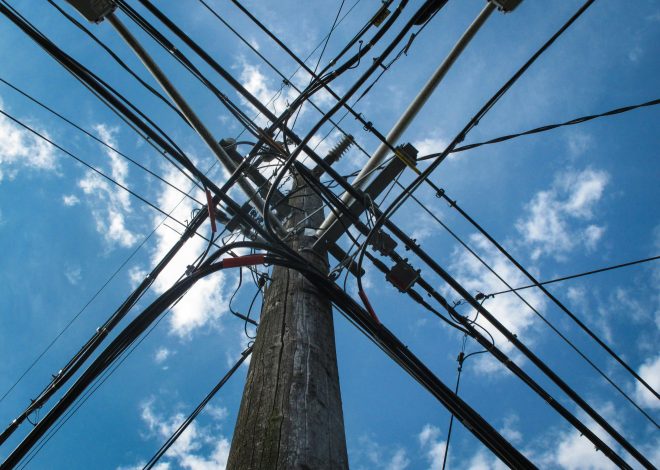What are the main differences between an electric instant hot water heater and a traditional water heater?
What are the main differences between an electric instant hot water heater and a traditional water heater?
Introduction to Water Heaters
When it comes to keeping our homes comfortable, hot water is a must. Whether you’re taking a relaxing shower, washing dishes, or doing laundry, having access to instant hot water makes life easier. But how do we get that hot water? Two popular options stand out: traditional water heaters and electric instant hot water heaters. Each has its own unique features and benefits. Understanding the differences between them can help you make an informed decision for your home. So let’s dive into the world of water heaters and explore what sets these two apart!
The Basics of Traditional Water Heaters
Traditional water heaters, often referred to as tank water heaters, are the most common type found in homes. They function by storing a large volume of heated water in a tank for immediate use.
These units typically range from 20 to 80 gallons in capacity. They maintain the water at a set temperature, ensuring hot water is always available when you need it.
A traditional heater relies on either gas or electricity for heating. The choice between these fuels can influence energy costs and efficiency levels.
One key aspect is recovery time—the rate at which they can refill and reheat after use. This can be an important factor during peak usage times like morning showers or evening baths.
While reliable, these systems take up significant space and may lead to increased energy bills due to standby heat loss over time.
The Advantages and Disadvantages of Traditional Water Heaters
Traditional water heaters are a common choice in many households. They typically store a large volume of hot water, allowing multiple taps to electric instant hot water heater run simultaneously without running out quickly.
One of the main advantages is their capacity. You can easily fill a bathtub or run several showers at once. This makes them ideal for larger families.
However, they come with some downsides. First, they take time to heat water when the tank runs empty. Plus, energy costs can be higher since these units constantly maintain temperature.
Space is another consideration. Traditional models often require significant room and proper ventilation, which might not suit all homes.
Maintenance is essential as well; sediment buildup over time can cause inefficiency and damage if not addressed regularly. Balancing these factors will help you understand if this option meets your needs.
How Electric Instant Hot Water Heaters Work
Electric instant hot water heaters operate by heating water on demand. When you turn on the tap, cold water enters the unit.
Inside, a powerful electric element activates, rapidly warming the flowing water. This process occurs within seconds, providing you with a continuous supply of hot water without any waiting time.
Unlike traditional systems that store heated water in tanks, these units eliminate standby heat loss. They only use energy when needed, making them more efficient and cost-effective in many cases.
Most models are compact and can be installed under sinks or mounted to walls. This versatility allows for installation in various locations throughout your home.
With advanced technology, some units even offer digital temperature controls for precise heating levels tailored to your needs. Thus, they reflect modern preferences for convenience and efficiency in daily routines.
The Pros and Cons of Electric Instant Hot Water Heaters
Electric instant hot water heaters offer a range of benefits that appeal to many homeowners. One major advantage is their energy efficiency. They heat water on demand, which means they use less energy compared to traditional models that continuously maintain hot water.
Space-saving design is another perk. These units are compact and can fit into smaller areas, making them ideal for homes with limited space.
However, there are downsides to consider. Installation costs can be higher upfront than conventional systems. Additionally, if multiple outlets require hot electric instant hot water heater supplier water simultaneously, the system may struggle to keep up with high demand.
Maintenance also plays a role in ownership experience. While generally low-maintenance, any issues might require specialized technicians for repairs or replacement parts due to the technology involved.
Understanding these pros and cons helps you make an informed decision about your hot water needs.
Factors to Consider When Choosing Between the Two
When choosing between an electric instant hot water heater and a traditional water heater, several factors come into play.
First, consider your household’s hot water demand. If you have a large family or frequently use multiple taps simultaneously, a traditional system may be more suitable for steady supply.
Space is another key factor. Electric instant models are compact and can fit in tighter areas, making them ideal for apartments or smaller homes.
Energy efficiency also deserves attention. Instant heaters typically consume less energy since they heat water on demand rather than keeping it hot continuously.
Budget plays its part too; the initial investment for an electric instant model might be higher but could lead to savings in utility bills over time.
Think about installation requirements and maintenance needs, as these can vary significantly between the two types of systems.
Conclusion
When considering a water heater, understanding the differences between an electric instant hot water heater and a traditional model is crucial. Each type has its unique features that cater to different needs.
Traditional water heaters store heated water in a tank. They provide a steady supply of hot water but can run out during heavy use. Their energy consumption can lead to higher utility bills over time, especially when they constantly heat stored water.
On the other hand, electric instant hot water heaters provide hot water on demand. This technology means you’re not limited by tank capacity; however, installation may require electrical upgrades depending on your home’s system.
When it comes to choosing between these two options, consider factors such as your household’s size, usage patterns, installation costs, and energy efficiency preferences. Each type of heater serves specific needs and lifestyles well.
Whether you opt for an electric instant hot water heater or stick with a traditional model will depend on what best fits your lifestyle and budget considerations. Making an informed choice ensures comfort and convenience in your daily routine while keeping long-term savings in mind.


